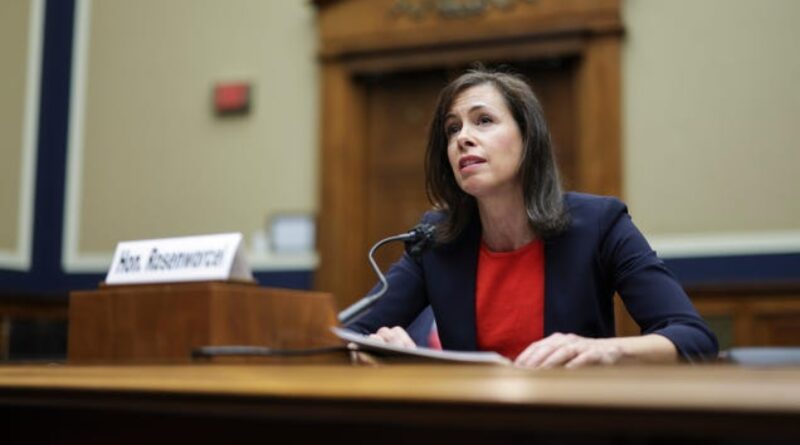Update: With a New Commissioner, FCC Will Finally Try to Reinstate Net Neutrality
Update 9/26/23 at 6:06 p.m. ET: On Tuesday afternoon, Federal Communication Commission chairwoman Jessica Rosenworcel announced the agency would indeed be rolling up its sleeves and would finally attempt to reinstate net neutrality rules.
Meet Microsoft’s New Surface Laptops
Rosenworcel said she shared a proposal with her fell commissioners that would potentially reestablish many of the FCC’s 2015 rules that treated all broadband data equally. If agreed, the commission would vote on Oct. 19 whether to begin the rulemaking process. This includes a period of public comment before the chairwoman can make a final decision whether to bring the matter to a full vote.
“In the wake of the pandemic and the generational investment in internet access, we have a window to update our policies to make sure that the internet is not only open, but fast and fair,” Rosenworcel said in her public comments.
Original story: It’s been six years since internet service providers were granted a boon allowing them to push and pull the levers of internet speeds for any website that may not want to pay a ransom. The end to limitations of what is called net neutrality has tugged at the heartstrings of many internet advocates
According to unnamed sources who spoke to Bloomberg, the U.S. Federal Communications Commission is just about ready to announce plans to bring back net neutrality rules. It comes just a few weeks after Congress finally approved new commissioner Anna Gomez, allowing for a 3-2 Democrat majority on total FCC decision-making.
Sources reportedly briefed on planned remarks said FCC Chairwoman Jessica Rosenworcel will speak on Tuesday about the agency’s role in net neutrality. There are no details yet on how the FCC plans to restore those rules on ISPs, but if the chairwoman decides to take a combative stance, it could end up being another protracted fight against the biggest internet providers AT&T, Verizon, and Comcast.
If you need a reminder, net neutrality is the idea that ISPs need to treat all data equally and that they can’t unfairly block certain content or throttle speeds to some sites. The FCC first established these rules in 2015 by classifying them as Title II under the Communications Act of 1934, meaning internet data received protections from providers using their power to discriminate against platforms. Without net neutrality, an internet provider could charge a tax to prioritize traffic to a site or throttle traffic to a destination that doesn’t pay up. In a world where consolidation has become the norm, ISPs could also simply slow traffic to a site that’s in direct competition with one of its own properties.
Whether it’s enough to remove the last lingering aftertaste of former FCC commissioner Ajit Pai’s reign remains to be seen. Pai, himself a former lawyer for Verizon before starting to work with the FCC, was nominated to chairman by President Donald Trump in 2017. He took the lead in reclassifying the internet as Title I under the Communications Act. Pai tried to argue that eliminating data protections was for the best and that companies would hire more people. As expected, that didn’t end up being the case. Instead, the then-FCC chairman argued that everything was fine with their pro-corporate decision-making by going all “how do you do, fellow kids,” and sharing a video of his office doing the Harlem Shake.
Pai resigned from his position on the day of President Joe Biden’s inauguration. But for years, Biden tried and failed to install a replacement commissioner to break the 2-2 partisan gridlock left at the FCC. Before the Senate approved Gomez for her position, the new FCC had already required that the largest internet service providers break down their costs and any hidden fees to customers, something that ISPs are really not big fans of.
For years, congressional Democrats have tried and failed to enact net neutrality legislation. In 2022, some senators introduced their own legislation that would reclassify broadband as an essential service, but like the American Data Privacy and Protection Act the proposed law did not make it out of committee.
Democratic Sen. Ed Markey, who was one of the two main sponsors of last year’s net neutrality legislation, shared a public letter to Rosenworcel on Monday saying “reclassifying broadband as a Title II service” is needed for the FCC to “conduct proper oversight of broadband internet.”
The FCC would need to first conduct a vote and then host months of public comments before enacting any new regulations. In that time, ISPs are likely to gum up the works with legal action, so it could be some time before we’ll have a clear idea of what’s in store for net neutrality.

